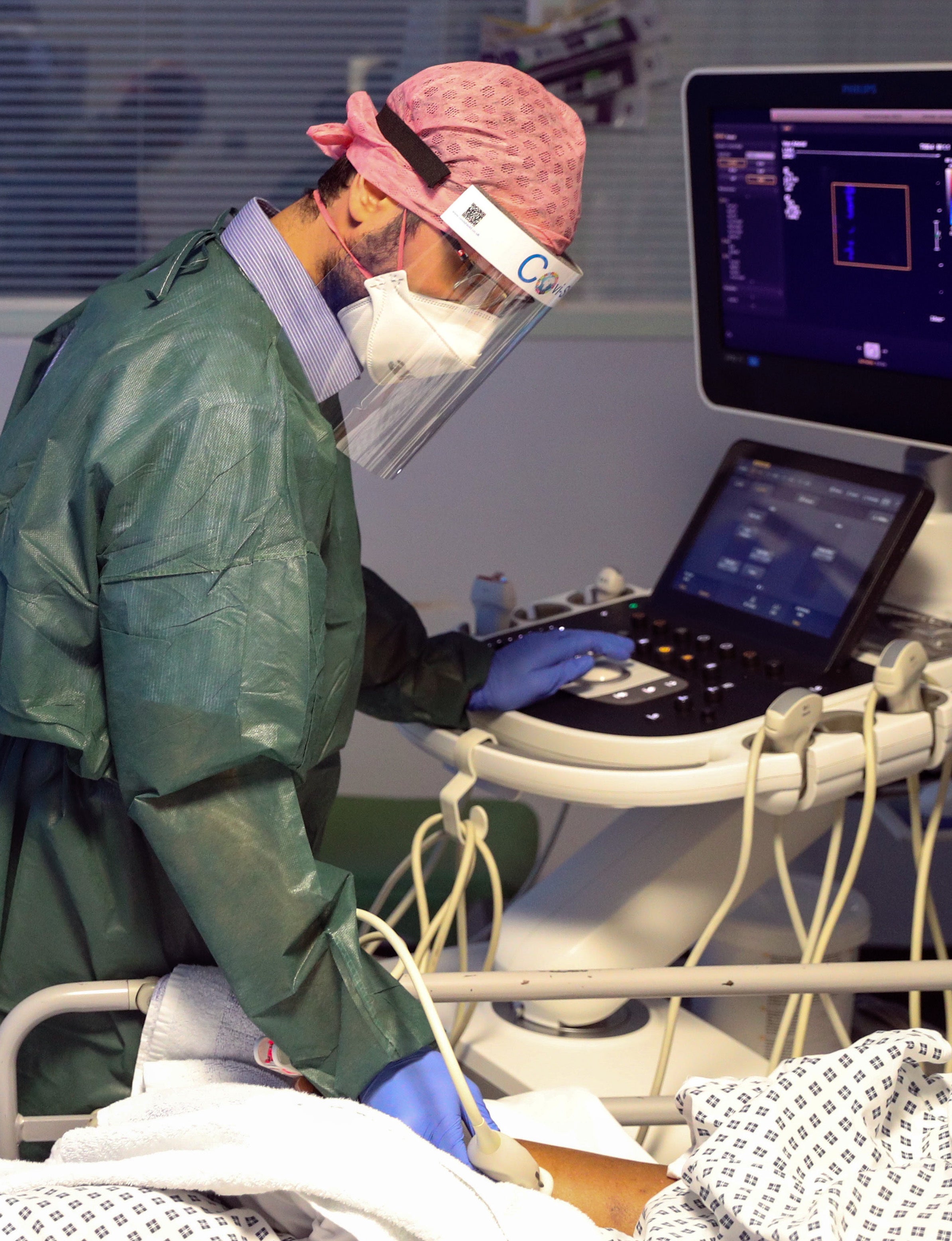Tiredness has damaged ability to treat patients, doctors say
A survey by the Medical Defence Union found that the Covid pandemic had worsened sleep deprivation and pressure among healthcare workers.

Your support helps us to tell the story
From reproductive rights to climate change to Big Tech, The Independent is on the ground when the story is developing. Whether it's investigating the financials of Elon Musk's pro-Trump PAC or producing our latest documentary, 'The A Word', which shines a light on the American women fighting for reproductive rights, we know how important it is to parse out the facts from the messaging.
At such a critical moment in US history, we need reporters on the ground. Your donation allows us to keep sending journalists to speak to both sides of the story.
The Independent is trusted by Americans across the entire political spectrum. And unlike many other quality news outlets, we choose not to lock Americans out of our reporting and analysis with paywalls. We believe quality journalism should be available to everyone, paid for by those who can afford it.
Your support makes all the difference.More than one in four doctors say tiredness has impaired their ability to treat patients, according to a new survey.
The Medical Defence Union (MDU), which carried out a survey of more than 500 doctors, found that the Covid-19 pandemic had exacerbated fatigue among healthcare workers.
Many doctors reported feeling sleep-deprived as they faced long hours without breaks, intense pressure and more staff absences, according to the research.
More than one in four (26%) said tiredness was impairing their ability to safely care for patients, including seven cases in which a patient sustained harm and 40 near misses.
Pressures on frontline healthcare workers are likely to get worse for doctors in the coming weeks
Meanwhile, 59% said that their sleep patterns had worsened during the pandemic, reporting side-effects of lack of concentration, difficulty in decision-making and mental health problems.
One doctor told the MDU how they had made an error while filling out a medical note entry, which led to a patient later collapsing after being given penicillin, to which they were allergic.
The doctor said they had been working nine hours straight without a food or toilet break, describing working conditions as a “perfect storm” of “chronic fatigue”.
Another healthcare worker said widespread staff shortages meant “mistakes are more frequent by the end of the day”.
One GP also claimed that there was “no capacity in the system to do anything about feeling tired or burnt out”.
Dr Matthew Lee chief executive of the MDU, warned that healthcare workers were “running on empty” as the organisation called on the Government and NHS employers to ensure adequate resources are put in place so that doctors can take regular breaks.
“Our members have come through a period of immense pressure caused by the pandemic and it is affecting all aspects of their life, including sleep patterns,” he said.
“Pressures on frontline healthcare workers are likely to get worse for doctors in the coming weeks. At a time of considerable staff absence in the NHS it is more important than ever that those staff who are fit to work are properly supported so they can care for patients safely.”
Dr Michael Farquhar, a consultant in paediatric sleep medicine at Evelina London Children’s Hospital, warned that sleep-deprived doctors can “lose insight” and are “more likely to make errors”.
“Dealing with the impact of Covid has exacerbated significant issues which already existed, with many healthcare professionals running on fumes,” he said.
“Our ability to process, retain and analyse information suffers, too, which means it can take longer to assess a patient’s symptoms and reach a diagnosis.
“Crucially, fatigued clinicians driving home after a shift are at increased risk of significant road traffic accidents.
“With staff exhausted by two years of the pandemic, fatigue is a critical issue for both staff wellbeing and patient safety.”